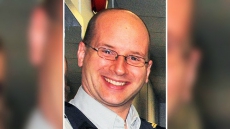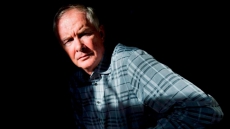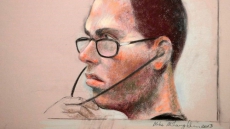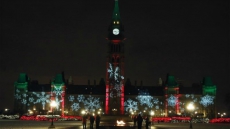OTTAWA — October 22 dawned as just another busy Wednesday morning on and around Parliament Hill.
Tourists wandered in the fall sunshine past the towering granite and bronze War Memorial, where two unarmed sentries stood ceremonial guard at the tomb of the unknown solder.
A few hundred metres north in parliament's gothic Centre Block, the prime minister, his cabinet and hundreds of MPs gathered for their weekly national caucus meetings, in turn attracting the usual throng of news media and eager young staff members — all mingling in the marble-floored halls with passing tour groups and good-humoured Hill security.
In a matter of a few moments just after 10 a.m., a lone gunman brandishing an antiquated lever-action hunting rifle shattered the peace, order and good government of that bright autumn morning and riveted national and global attention on Canada's capital.
Coming just two days after another suicidal attack by a man with known jihadist sympathies who ran down a Quebec soldier, the brazen Ottawa assault rattled the country.
The attack on Parliament Hill and killing of soldiers Nathan Cirillo and Patrice Vincent ignited a debate on home-grown terrorism and are the overwhelming choice as Canada's 2014 News Story of the Year in the annual survey of the country's newsrooms by The Canadian Press.
Almost 70 per cent of respondents — 59 of 85 newsrooms — picked the events surrounding Oct. 22 as the year's seminal news.
"Home-grown terrorism exposed our vulnerability and shook a nation's faith in its safety and security," wrote Frank De Palma, newsroom director of The Chronicle Herald newspaper in Halifax.
Kevin Usselman, news director at 660News CFFR in Calgary, said the story brought home "the realization that Canada is no longer immune to events taking place outside of our borders ... a coming of age kind of story."
Two other deeply troubling events tied for second in the annual newsroom survey: The murder of three RCMP officers by a gunman in Moncton, N.B.; and the national debate over sexual harassment sparked by allegations against radio host Jian Ghomeshi and the suspension of two Liberal MPs by Justin Trudeau.
Both those stories garnered 10 votes each.
Julie Carl, the deputy editor of the Winnipeg Free Press, elected to choose the sexual harassment story for reasons also cited by several others.
"I was torn between this and the shooting at Parliament and the Mounties' deaths," Carl wrote.
"But the conversation about sexual harassment and why women don't report seems to indicate a tipping point in that conversation. I believe we will be talking about it for a long, long time."
Others wrestled with the choice between two very different but disturbing acts of violence.
"It really was a toss-up between the Ottawa terrorism and the Moncton RCMP shootings," said Darryl Mills of the Prince Albert Daily Herald in Saskatchewan.
"Both so massively un-Canadian and attacks on who we are."
The issue of home-grown terrorist attacks appears destined to continue dominating news into 2015.
Self-styled Canadian jihadists continue making public threats, while the motivations of Ottawa gunman Michael Zehaf Bibeau remain a matter of some debate.
RCMP Commissioner Bob Paulson has described Zehaf Bibeau's "distorted world view" and said he was "driven by ideological and political motives."
A video made by Zehaf Bibeau before the attack has yet to be made public and may never be, despite initial RCMP assurances it would be put in the public domain.
Prime Minister Stephen Harper, in a year-end interview with CBC, was adamant the attacks are not a result of his government's decision to join air strikes against ISIL in Iran.
"Look, let's be very clear on this," said Harper.
"We're not at risk from ISIL because we're fighting them. We're fighting them because we are at risk from them.
"This is an organization, along with the entire global jihadist movement they represent, that has repeatedly made threats on this country."
That cause-and-effect argument appears to be still a matter of live debate in the newsrooms of the country, judging by some comments to The Canadian Press survey.
"The slayings of two Canadian soldiers and 'Canada joins combat mission in Iraq' are inextricably linked, in my opinion," wrote Margo Goodhand, editor of the Edmonton Journal.
"We cannot make a decision to go to war without accepting there may be consequences, both short and long-term."
Added Brad Works, the managing editor of the Journal Pioneer in Summerside, P.E.I.:
"It's fair to say that Micheal Zehaf Bibeau's actions forced Canadians to reconsider our security at home and question our place and actions in world affairs. Few Canadians were not touched in some way by this story."





